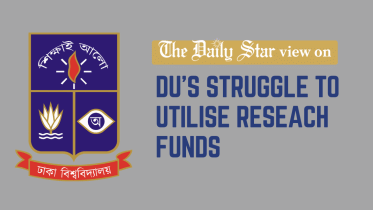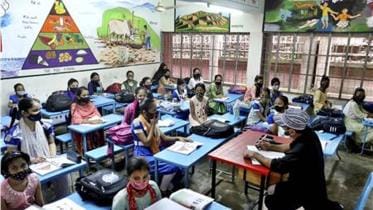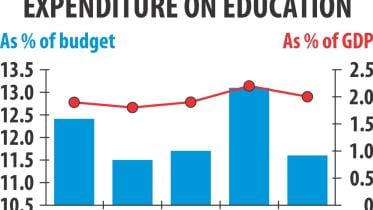education sector
Spending on education falls short of expectations
For example, when the Dakar Declaration came in 2000, the country said it would spend 6 percent of GDP on education. The United Nations Educational, Scientific and Cultural Organisation recommends earmarking four to six percent of the GDP for the sector.
6 June 2024, 00:42 AM
Why such disinterest in research?
The national rhetoric of prioritising high-quality education seems to be going nowhere.
19 June 2023, 02:00 AM
Education in budget 2022-23: Small mercies and dashed hopes
Educators and concerned citizens have been urging a major increase in public allocation for the education sector.
12 June 2022, 18:00 PM
Too inadequate to raise quality
If you walk through an alley in any neighbourhood in the capital, you would see kindergartens and private primary schools swarming the area with each and every one of them boasting of their high standard.
30 May 2016, 18:00 PM
Rising tension in the education sector
Both private and public universities in the country seem to be in a state of flux, with dissatisfied students and teachers waging separate movements to realise their demands.
10 September 2015, 18:00 PM






